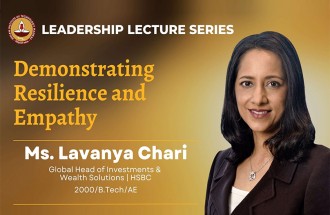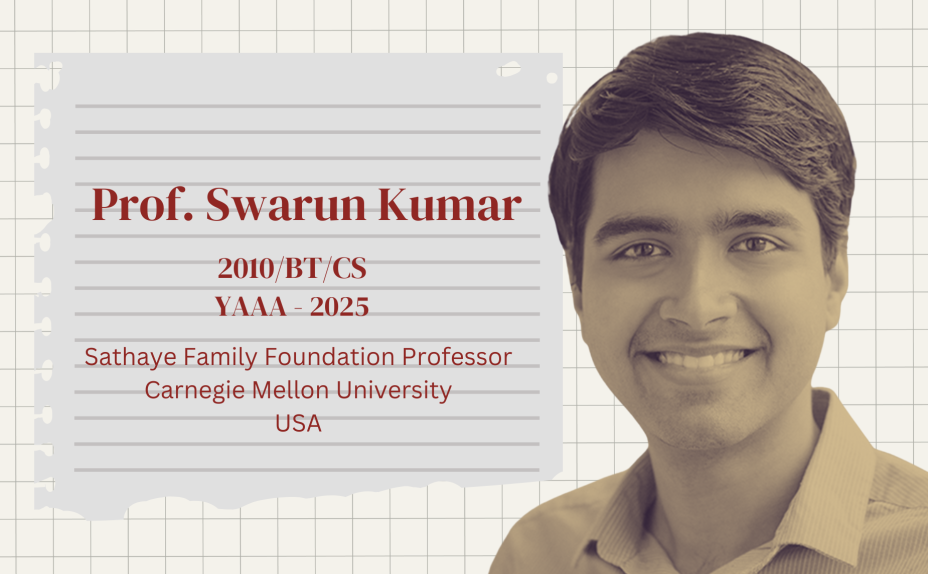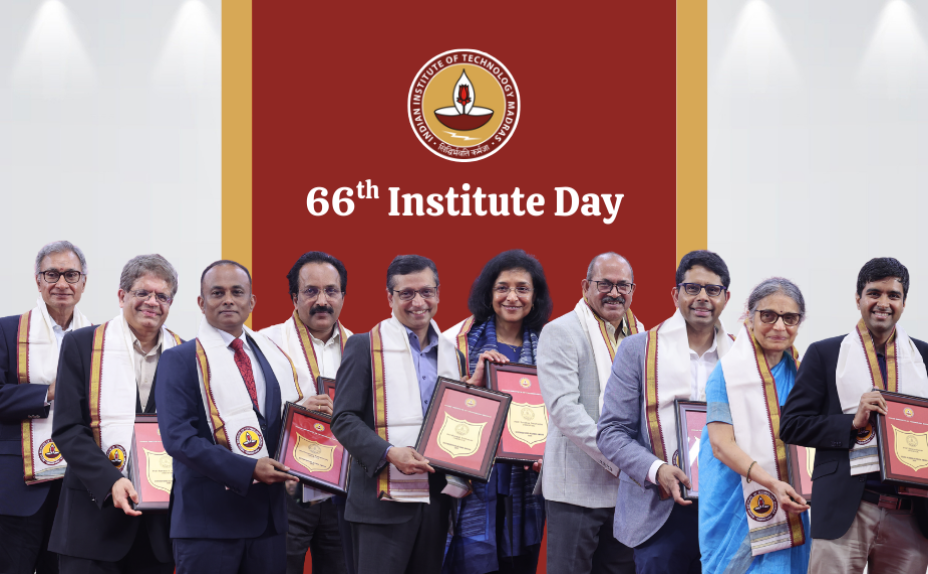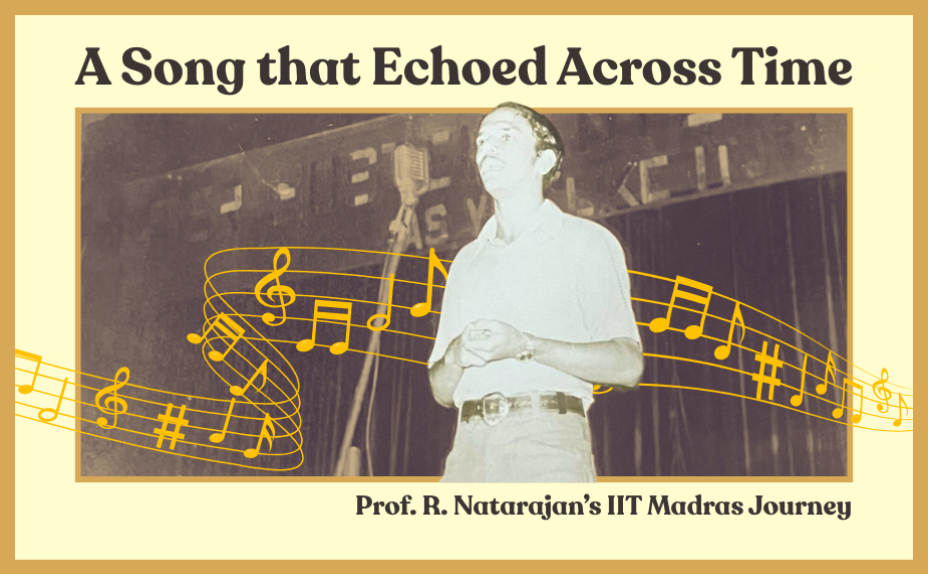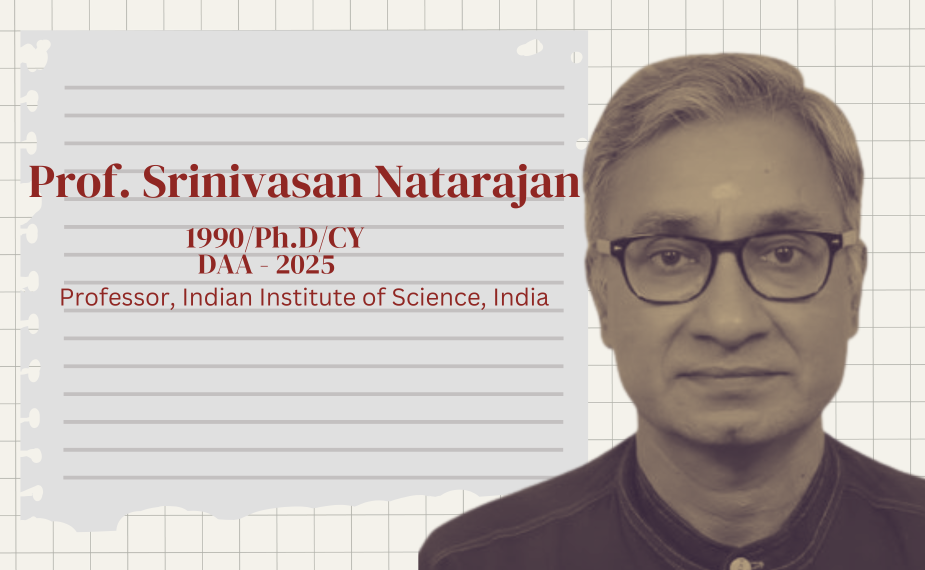
The Journey of Prof. Srinivas Natrajan
In the heart of IIT Madras, where corridors hum with the energy of aspiring technologists, scientists, and thinkers, some stories quietly weave themselves into the fabric of the institute’s legacy. One such story belongs to Prof. Srinivasan Natarajan, a name that might not be widely known in undergraduate circles but is etched into the history of the institute with quiet distinction. A former PhD scholar in Chemistry, hostel athlete, and student leader, Prof. Natrajan’s journey exemplifies the spirit of IIT Madras—not just of academic excellence, but of perseverance, personality, and pride.
A Humble Beginning
“I joined IIT Madras in August 1982 as a project assistant,” begins Prof. Natarajan, recalling his early days with clarity and nostalgia. “I lived in Krishna Hostel, one of the post-graduate residences. In February 1983, I formally registered for a PhD in Chemistry and completed my degree in 1990.”
During his six formative years at Krishna Hostel (1982–1988), Prof. Natrajan witnessed the full spectrum of campus life. His stay was so memorable that even after vacating the hostel due to accommodation constraints, he continued returning for meals. “Breakfast, lunch, and dinner were always at Krishna,” he smiles, underscoring the sense of belonging the hostel inspired.
The Rare Science Laureate
While engineering alumni often dominate the Distinguished Alumnus Award, Prof. Natrajan’s recognition is a rarity. “Very few from the sciences—especially from Chemistry—receive this honour,” he notes. “Only six or seven, and even fewer who pursued their PhDs here, went abroad for postdoctoral work, and then returned to contribute meaningfully.”
Prof. Natrajan stands in the legacy of Prof. Jayakrishnan, another IITM PhD graduate in Polymer Chemistry, and takes pride in representing the pure sciences in a space often filled with technological and entrepreneurial achievements.
Lessons from a Taskmaster
His academic journey was forged under the demanding mentorship of Prof. G.V. Subba Rao, a no-nonsense researcher and a former associate of the legendary Prof. C.N.R. Rao. “Prof. Subba Rao was a taskmaster. He trained us to solve research problems that others wouldn’t even touch—problems too advanced or nuanced for smaller universities or some national labs.”
Prof. Natrajan remembers the rigorous work ethic instilled in him. For one project, he had to synthesize the same set of compounds seven times, each synthesis cycle taking 21 days. “That’s nearly six months of repetition. But it taught me confidence—confidence that any research problem can be tackled, wherever you are.”
Though his mentor passed away years ago, the lessons remain etched in his mind. “Today’s generation may not accept that kind of grind, but in experimental chemistry, that training is gold.”
A Life Beyond the Lab
Krishna Hostel wasn’t just a residence; it was the stage for Prof. Natrajan’s dynamic extracurricular life. He was an avid sportsman, a core player in the IIT Madras volleyball team, which bagged multiple Inter-IIT gold medals during his time. “We were unbeatable in volleyball, cricket, tennis, and kabaddi—all dominated by postgraduates and PhDs back then.”
He also served in numerous leadership roles within the hostel— Cultural Secretary, Sports Secretary, and more. Under his stewardship, Krishna Hostel became a trendsetter. “We were the first to have a color television, just in time for the 1982 Asian Games,” he recalls proudly. “Later, we even had a VCR—a luxury back then—donated by an MTech student.”
These small revolutions made Krishna the most sought-after hostel on campus. “BTechs would wait for summer vacation just to shift into Krishna and enjoy the food and vibe.”
The Legacy Continues
Now a distinguished alumnus, Prof. Srinivas Natrajan’s journey from a project assistant to an academic and research professional is a testament to the values IIT Madras instills—rigor, resilience, and resourcefulness.
His story is not one of shortcuts or serendipity, but of hard-earned growth. Of doing the same synthesis seven times until it became second nature. Moving from the periphery of the IIT social structure to its center. Of finding family and fulfillment in hostel corridors and volleyball courts.
As he reflects on his time, Prof. Natrajan sums it up simply: “Those years made me who I am. IIT Madras gave me the tools—not just to work, but to lead, persist, and inspire.”


